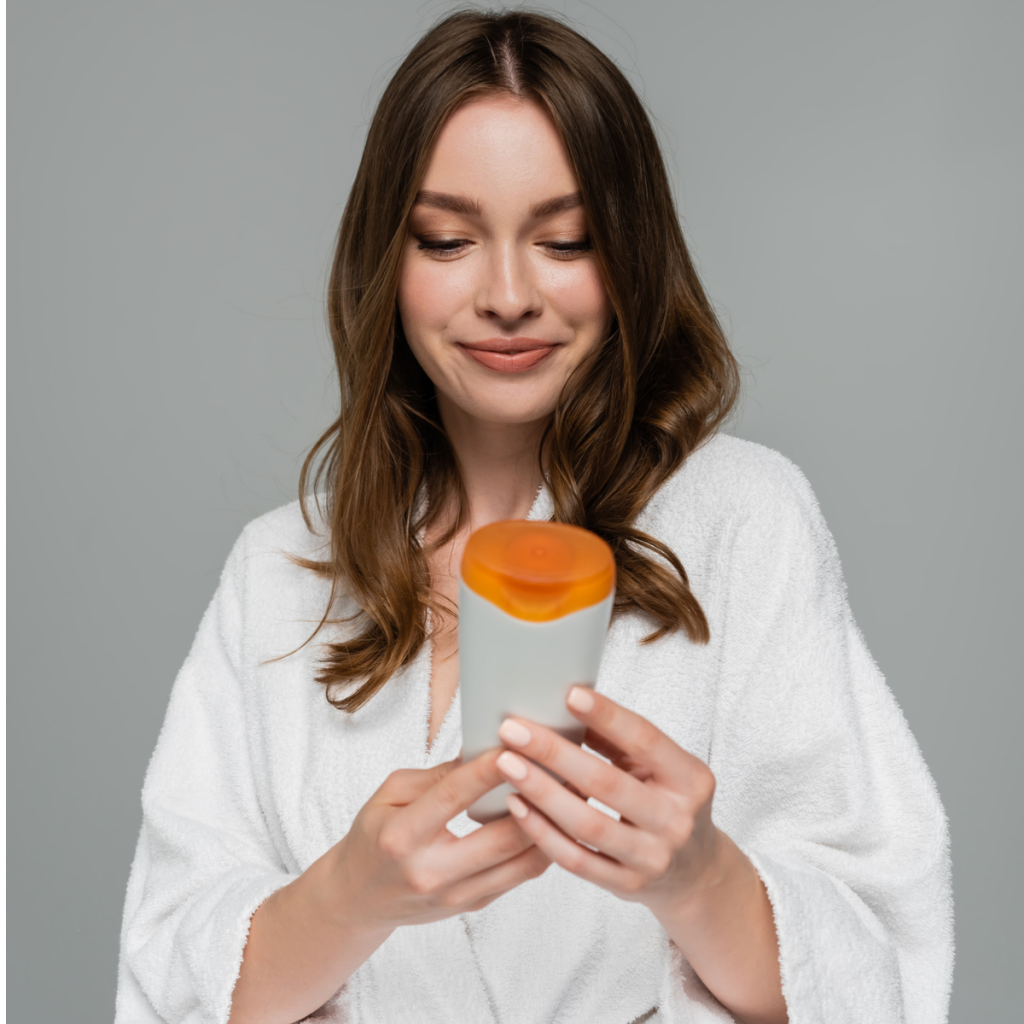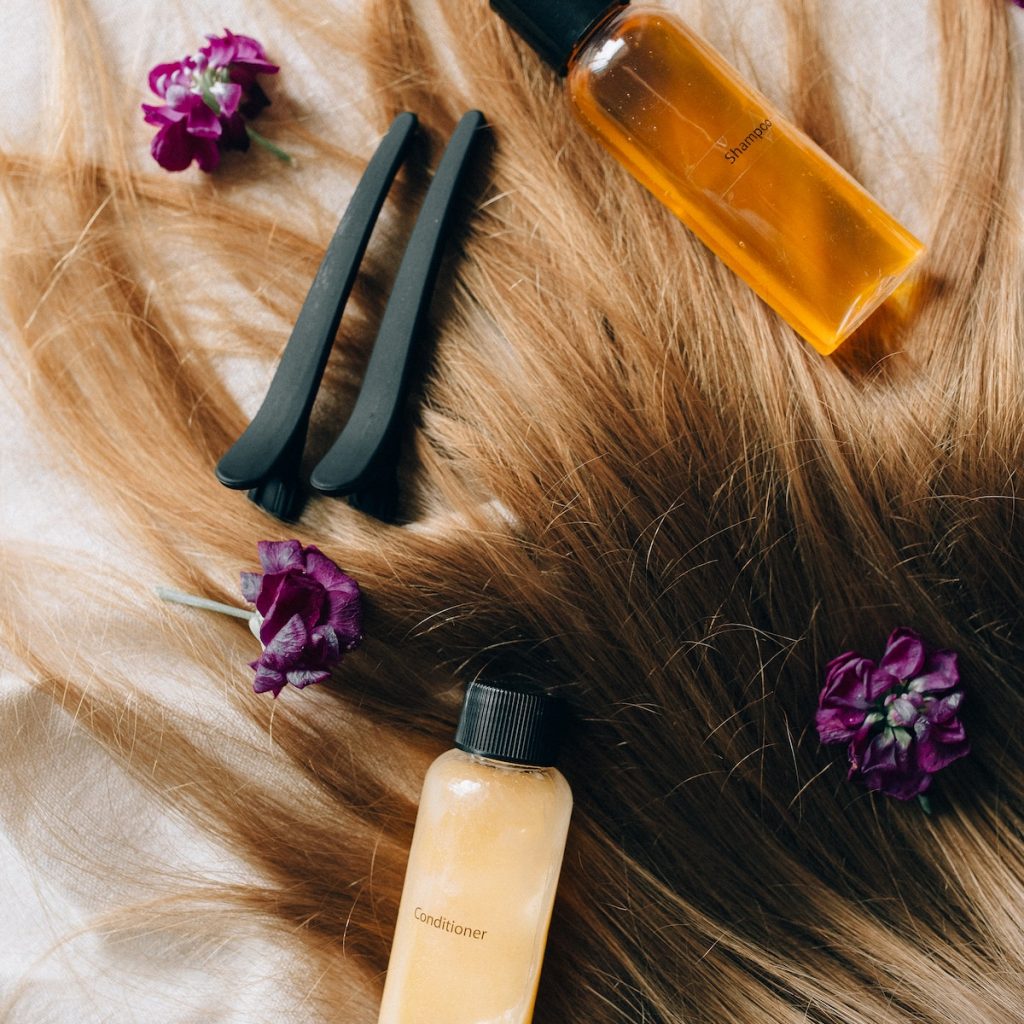Learn how to identify sulfates on a shampoo’s ingredient list and understand their potential effects on your hair and scalp.
Identifying Sulfates on a Shampoo’s Ingredient List
Have you ever looked at the back of a shampoo bottle and felt completely confused by the long list of ingredients? You’re not alone! One ingredient that often causes confusion is sulfates. In this article, we will dive into the world of sulfates and help you understand how to identify them on a shampoo’s ingredient list. So sit back, relax, and get ready to become a shampoo detective!

Understanding the Role of Sulfates in Shampoos
Before we start sleuthing, let’s first understand what sulfates actually are. Sulfates are a type of detergent or surfactant commonly used in shampoos to create that satisfying lather. They help to remove dirt, oil, and product buildup from your hair, leaving it squeaky clean. But wait, there’s more!
Sulfates are also responsible for making your shampoo foam up like a bubble bath. So, if you enjoy that foamy experience while washing your hair, you can thank sulfates for that extra bit of fun!
What are Sulfates?
Sulfates are a group of chemicals, derived from sulfuric acid, that have cleansing properties. They are typically listed on ingredient labels as Sodium Lauryl Sulfate (SLS) or Sodium Laureth Sulfate (SLES).
But beware, sulfates can be like undercover agents with aliases! There are other sneaky names they can go by, such as Ammonium Lauryl Sulfate (ALS) or Sodium Coco Sulfate (SCS). So keep your magnifying glass handy to spot these imposters!
When it comes to the chemistry of sulfates, they have a hydrophilic (water-loving) head and a hydrophobic (water-repelling) tail. This unique structure allows them to bind to both water and oil, making them effective in removing dirt and oil from your hair.
Furthermore, sulfates have an amazing ability to reduce the surface tension of water. This means that when you apply shampoo with sulfates to your hair, it can penetrate through the oils and create a rich lather, ensuring that every strand of hair is thoroughly cleansed.
Why are Sulfates Used in Shampoos?
Now you might be wondering, why do manufacturers even use sulfates in shampoos if they can potentially be harmful? Well, sulfates are incredibly effective in removing dirt, oils, and styling products from your hair. They also create that satisfying lather, giving you the illusion of a deeper clean.
Additionally, sulfates are relatively cheap and readily available, making them a convenient choice for many hair care companies. After all, who doesn’t love a good bargain, right?
Moreover, sulfates are versatile and can be used in a variety of hair care products, such as shampoos, conditioners, and styling products. Their ability to cleanse and create lather makes them a popular choice among manufacturers.
It’s worth noting that not all sulfates are created equal. While Sodium Lauryl Sulfate (SLS) is known for its strong cleansing properties, it can also be more drying and irritating to the scalp. On the other hand, Sodium Laureth Sulfate (SLES) is milder and less likely to cause irritation.
Some hair care companies have recognized the potential drawbacks of sulfates and have started to formulate sulfate-free shampoos. These alternatives aim to provide a gentler cleansing experience without compromising on effectiveness.
So, the next time you pick up a bottle of shampoo and see sulfates on the ingredient list, you’ll have a better understanding of their role in creating that luxurious lather and deep cleansing experience. Whether you choose to embrace sulfates or opt for sulfate-free options, it’s all about finding the right balance for your hair and scalp!
The Potential Risks of Sulfates
While sulfates can work wonders in cleansing your hair, they do have some potential risks that you should be aware of. Let’s delve into the dark side of sulfates!
Sulfates, commonly found in many shampoos and cleansers, have long been known for their cleansing power. However, their effectiveness comes at a price. One of the main concerns with sulfates is that they can strip your hair of its natural oils, leading to dryness and damage. Imagine your hair feeling like straw after washing, a telltale sign that sulfates might be the culprit. For individuals with already dry or damaged hair, sulfates can exacerbate these issues, making it even more crucial to kick them to the curb and show your hair some tender loving care.
But it’s not just your hair that can suffer from sulfates’ harsh effects. Another potential downside of sulfates is their ability to cause skin irritation. This is especially true for those with sensitive skin or scalp conditions like eczema or psoriasis. Sulfates have the potential to dry out the skin and disrupt its natural barrier, leading to itchiness, redness, and overall discomfort. If you’ve been experiencing any of these symptoms after using a shampoo with sulfates, it might be time to bid farewell to these skin irritants and switch to a gentler alternative.
Fortunately, the market is now filled with sulfate-free options that can still provide effective cleansing without the potential risks. These alternatives often use milder surfactants, such as cocamidopropyl betaine or decyl glucoside, which are gentler on both your hair and skin.
Moreover, sulfate-free products are not just limited to shampoos. You can find sulfate-free toothpaste, body washes, and even laundry detergents. By opting for sulfate-free options, you can reduce your exposure to these potentially harmful chemicals and take a step towards a healthier lifestyle.
It’s important to note that while sulfates have their downsides, they are not inherently evil. They have been used in personal care products for decades and are generally recognized as safe by regulatory authorities. However, if you have specific concerns about sulfates or have experienced adverse reactions, it’s always best to consult with a dermatologist or trichologist who can provide personalized advice.
In conclusion, sulfates can be effective cleansers, but they do come with potential risks. From hair damage to skin irritation, being aware of these downsides can help you make informed choices when it comes to your personal care products. So, next time you’re shopping for shampoos or cleansers, take a closer look at the ingredients list and consider opting for sulfate-free alternatives that can still leave you feeling clean and refreshed without the potential drawbacks.
How to Identify Sulfates on Shampoo Labels
Now that you’re equipped with some sulfates knowledge, let’s uncover the secret code of shampoo labels. Here are some tips on how to identify sulfates in the ingredient list:
When it comes to choosing the right shampoo for your hair, it’s important to be aware of the ingredients it contains. Sulfates, a common ingredient in many shampoos, can have potential drawbacks for certain individuals. By learning how to identify sulfates on shampoo labels, you can make more informed decisions about the products you use on your hair.
Common Names for Sulfates in Ingredients
As mentioned earlier, sulfates often masquerade under different names. Besides Sodium Lauryl Sulfate (SLS) and Sodium Laureth Sulfate (SLES), keep an eye out for Ammonium Lauryl Sulfate (ALS), Sodium Coco Sulfate (SCS), and similar aliases.
These sulfates are commonly used in shampoos due to their ability to create a rich lather and effectively remove dirt and oil from the hair. However, some individuals may experience dryness, scalp irritation, or color fading when using shampoos containing sulfates. Therefore, it’s essential to be aware of these alternative names to avoid potential side effects.
Remember, these are the usual suspects, but the list of names can be longer than a detective novel, so be vigilant! It’s always a good idea to familiarize yourself with the different names sulfates can hide behind, as new variations may emerge over time.
Decoding Chemical Names for Sulfates
The ingredient list on shampoo labels can resemble a complex science experiment. But fear not, dear reader! There is a simple trick to spot sulfates. Look for ingredients that contain “sulfate” in their name. For example, Sodium Lauryl Sulfate is a dead giveaway!
However, it’s important to note that not all ingredients that contain “sulfate” are harmful. Some may be naturally derived and gentle on the hair. For instance, Sodium Coco Sulfate, derived from coconut oil, is considered milder compared to other sulfates and is often used in natural or organic shampoos.
Keep in mind that while sulfates can effectively cleanse the hair, they can also strip away natural oils, leading to dryness and potential damage. If you have sensitive skin, dry hair, or are looking for a gentler alternative, consider exploring sulfate-free shampoos, which are formulated without these potentially harsh ingredients.
So, it’s always good to do some additional research to make an informed decision. Understanding the different names and chemical variations of sulfates can empower you to choose shampoos that align with your hair and scalp needs.
Sulfate-Free Alternatives
Now that you know the downside of sulfates, let’s explore some sulfate-free alternatives that can still give you a clean and enjoyable hair-washing experience.
Benefits of Sulfate-Free Shampoos
Sulfate-free shampoos are like superheroes coming to the rescue of your hair and scalp. These gentle cleansers can help maintain the natural moisture balance of your hair, leaving it soft, shiny, and healthy-looking.
Additionally, sulfate-free shampoos are less likely to cause irritation, making them a great choice for those with sensitive skin or scalp conditions.
Recommended Sulfate-Free Shampoos
Searching for the perfect sulfate-free shampoo can be overwhelming, but fear not! We’ve compiled a list of some highly recommended options to get you started on your sulfate-free journey.
- Brand A – Try their “Gentle Cleansing Shampoo” for a sulfate-free experience like no other.
- Brand B – Their “Moisturizing Shampoo” will leave your hair feeling nourished and sulfate-free.
- Brand C – With their “Soothing Shampoo,” you can bid adieu to sulfates and say hello to happy and healthy hair.
Remember, everyone’s hair is unique, so what works for one person may not work for another. It’s all about finding the perfect match for your hair’s needs.
Making the Switch to Sulfate-Free Shampoos
Now that you’ve decided to embark on the sulfate-free journey, here are a few things to expect and tips to ensure a smooth transition.
What to Expect When Switching to Sulfate-Free Shampoos
At first, you may notice that your hair feels different when using a sulfate-free shampoo. It might not lather up as much as you’re used to, but fret not, it’s still doing its job! Sulfate-free shampoos cleanse your hair just as efficiently, even if they don’t foam up like a bubble bath.
Over time, you may also notice improvements in the texture and overall health of your hair. Say hello to softer, more manageable locks!

Tips for Transitioning to Sulfate-Free Hair Care
To ensure a smooth transition to sulfate-free hair care, here are a few tips to keep in mind:
- Start with a clarifying sulfate-free shampoo to remove any lingering product buildup from previous shampoos.
- Give your scalp some extra TLC by massaging it gently while shampooing to promote blood circulation and stimulate hair growth.
- Consider using a sulfate-free conditioner or mask to keep your hair hydrated and nourished.
- Patience is key! Allow your hair and scalp some time to adjust to the new routine and enjoy the journey to healthier hair.
And there you have it, my shampoo-sleuthing friend! Armed with this newfound knowledge, you’ll now be able to decipher those ingredient labels with ease and make an informed decision about the shampoos you use.
So go forth, embrace the world of sulfate-free hair care, and let your locks shine brighter than ever before!





